Kyoto Confectionery Museum: Learn And Taste Japan's Wagashi History

Kyoto Confectionery Museum is a facility that educates visitors on wagashi and traditional Japanese sweets. Guests can see stunning wagashi art, historical artifacts, and even sip on matcha. This is a must-visit, lesser-known spot to see in Kyoto.
A Must in Kyoto - Try Traditional Sweets
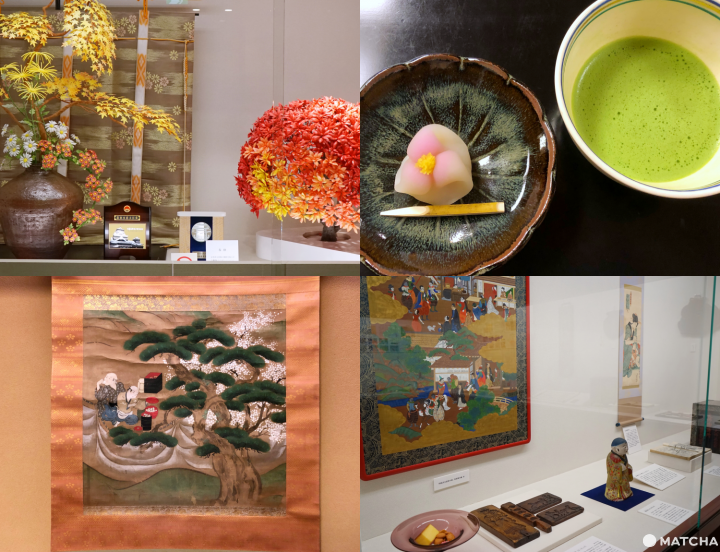
Kyoto is one of the best places to encounter Japan's long history of tea ceremonies and traditional confectionery, or wagashi. From cafes with matcha to all types of mochi (soft rice confectionery), you can find endless options to try uniquely-Japanese treats in the ancient capital.
A must-visit is the Kyoto Confectionery Museum, where guests can experience this beautiful and delicious tradition through exhibits and tastings.
Kyoto Confectionery Museum - Explore and Indulge in Picturesque Desserts
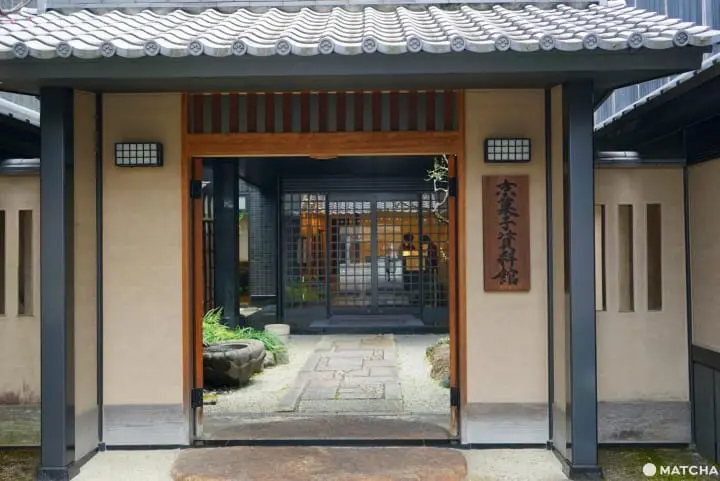
The Kyoto Confectionery Museum is in a secluded but accessible area of Kyoto, north of Kyoto Imperial Palace, along the Karasuma Line on the Kyoto Subway.
Started in 1978, the museum educates the community about traditional Japanese confectionery and its craft. Admission to the museum is free, making it an affordable choice for all visitors. English-language pamphlets are available, so inquire at the front desk when you arrive.
The second floor of the museum houses historical exhibits and pieces donated by collectors around Japan. There are also togei gashi on display, or ornamental candy sculptures crafted to look like real flowers and trees.
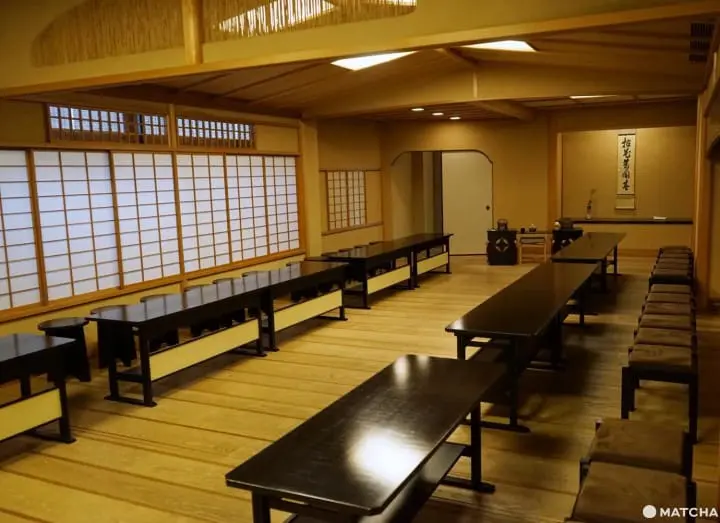
The first floor of the museum contains a tea room (pictured above) where you can indulge in matcha and seasonal Kyoto wagashi.
Next door is Tawaraya Yoshitomi, a renowned Kyoto confectionery with exquisite souvenirs you shouldn't miss before leaving.
Be Amazed by Colorful Exhibits and Candy Artwork
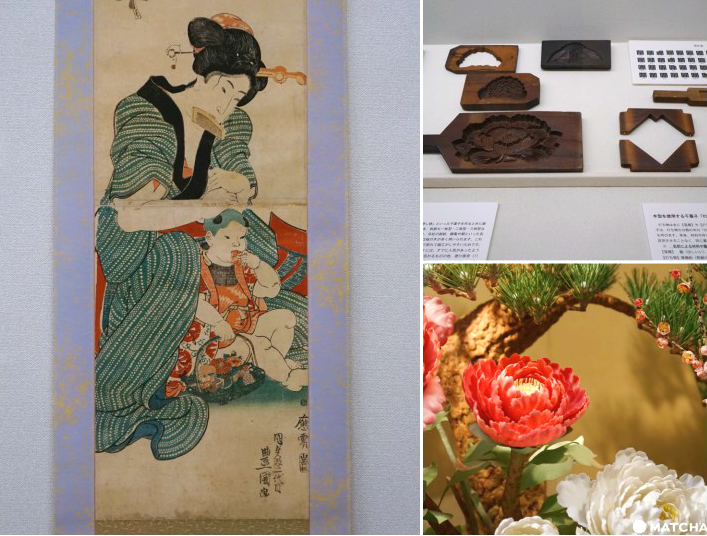
Pictured above is some of what you can see on display on the second floor: a hanging of a mother and child, enjoying sweets (left), historical molds from the Edo period (1603 - 1868) (upper right), and togei gashi sculpture of seasonal flowers (lower right).
The explanations and information are in Japanese, but each object is gorgeously preserved and will be sure to keep your attention.
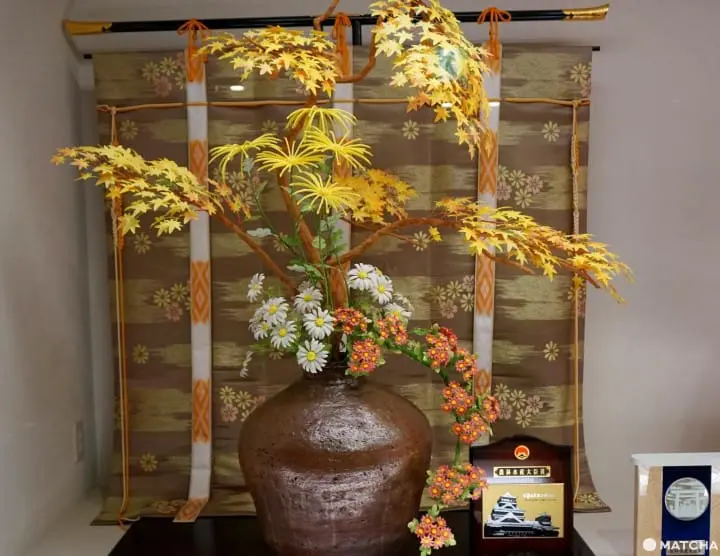
The extensive togei gashi collection is particularly gorgeous. Made of sugar and flour from glutinous rice, this detailed art has long been a prized part of Kyoto's culture.
The large scale and realistic nature of these pieces show the dedication and high skill of the artisans and are a must-see. Furthermore, winning pieces of national competitions are often on display.
Seasonal and themed exhibits are also held at the museum, making this a spot exciting even after the first visit. In the past, displays about different regional sweets around Japan and the history and evolution of confectionery have been held.
Japanese Teatime - Enjoy Uji Matcha and Kyoto Sweets
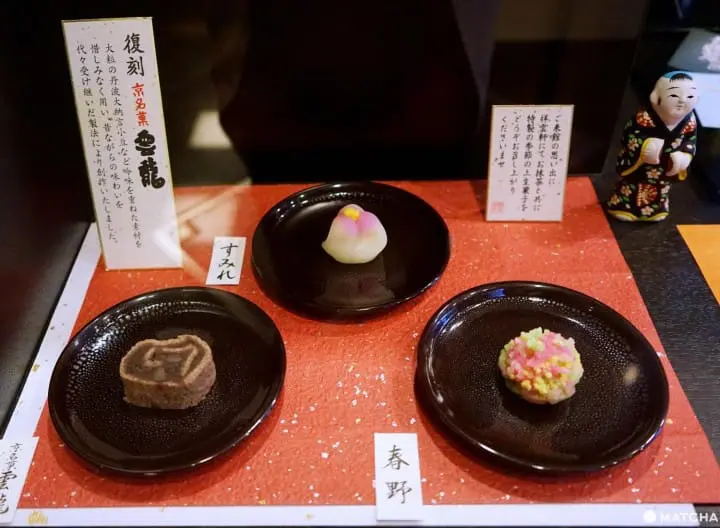
After browsing the upstairs, visitors are welcome to experience matcha and sweets in the tea room on the first floor. The matcha and sweets set costs 700 yen (including tax). Customers can choose from a variety of traditional desserts, including wagashi inspired by the season, and Unryu, a famous Kyoto sweet made with red bean paste.
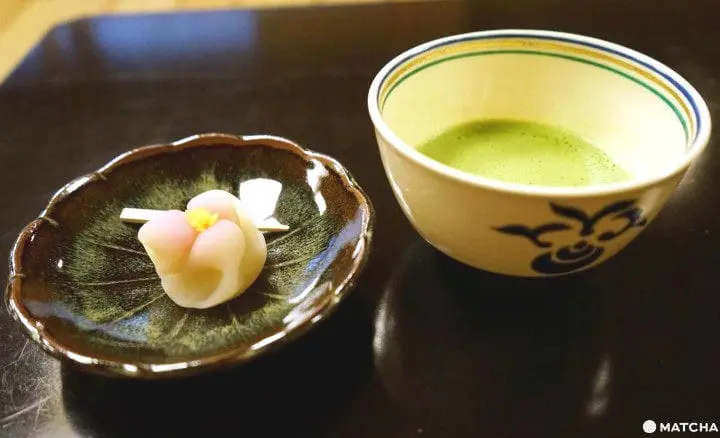
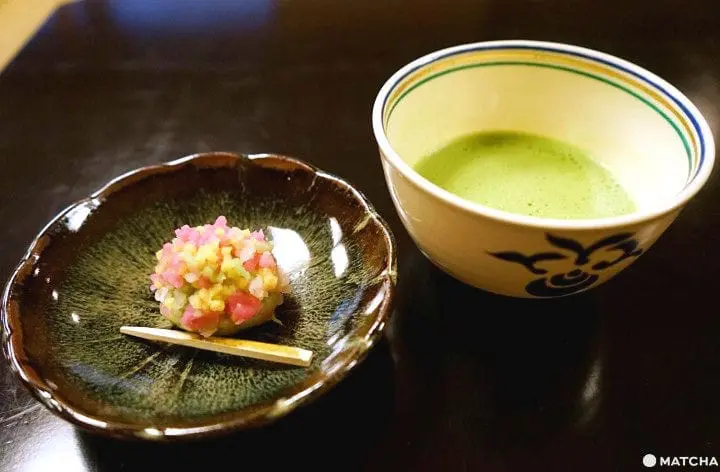
The two pictures above feature seasonal choices that were available in March: lily, and spring flowers. The sweets taste as delicious as they look.
The sugary treats pair deliciously with the full-bodied matcha from Uji, a region in southern Kyoto with world-famous green tea.
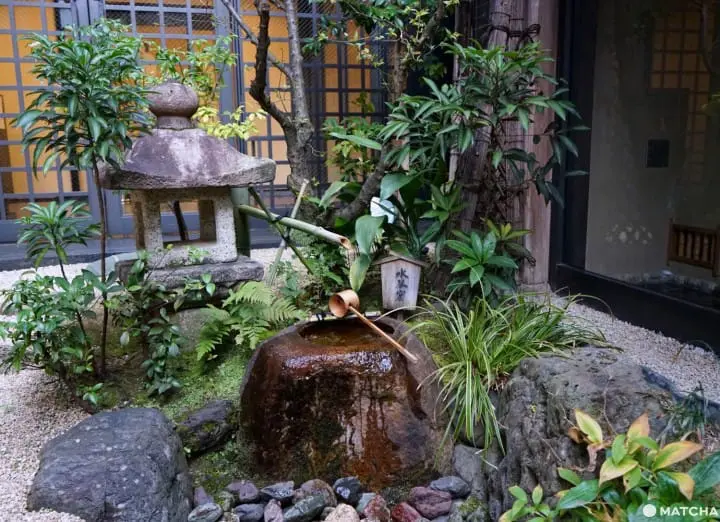
After indulging in dessert and matcha, step outside to the small courtyard just outside the tea room. There is a fountain found in Japanese gardens called a suikinkutsu.
Use the ladle to pour water onto the rocks to hear a gentle sound created by the shape of the fountain underground. It is a soothing sound that will help relax you further for the next part of your Kyoto trip.
Remember Your Trip with High-Quality Souvenirs
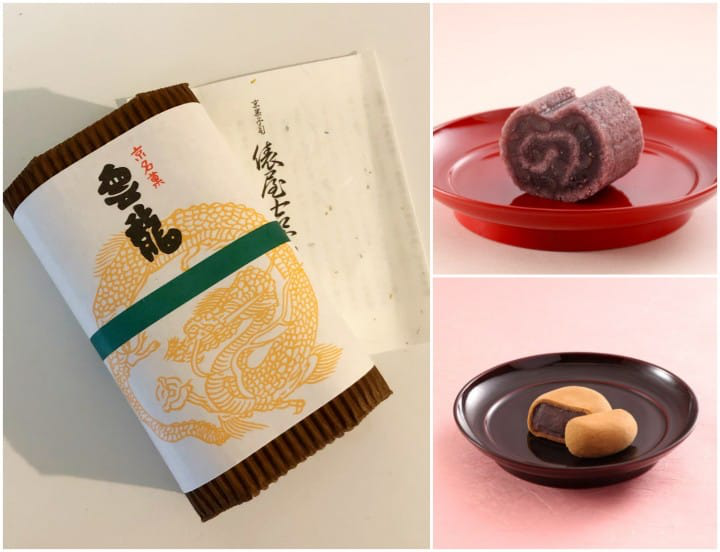
Top right and bottom right pictures courtesy of Tawaraya Yoshitomi
Before leaving, don't forget to browse Tawaraya Yoshitomi, a renowned confectionery in Kyoto. It is next door to the museum and can be accessed by passing by the small garden with the suikinkutsu. The shop sells beautifully packaged Kyoto sweets, ideal for thoughtful gifts for family and friends.
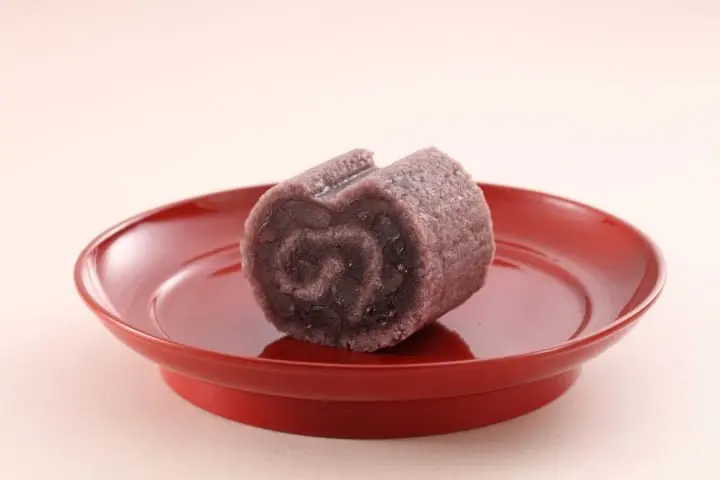
Picture courtesy of Tawaraya Yoshitomi
Pictured above is one of the store's most well-selling items, Unryu (*1), a red bean paste-based sweet (1,620 yen for one roll, 1,080 yen for a half roll; prices include tax). Its shape is meant to resemble that of a dragon (ryu in Japanese) riding on a cloud in the sky.
The red beans used are grown in the Tamba region near Kyoto. It has a mild sweetness, with a smooth outer texture and slightly chewy inside. Guests who enjoy red bean paste are highly recommended to try this.
1*: Unryu is made of two different types of red bean paste: finely-ground red bean paste and Murasame red bean paste, which is mixed with rice flour.
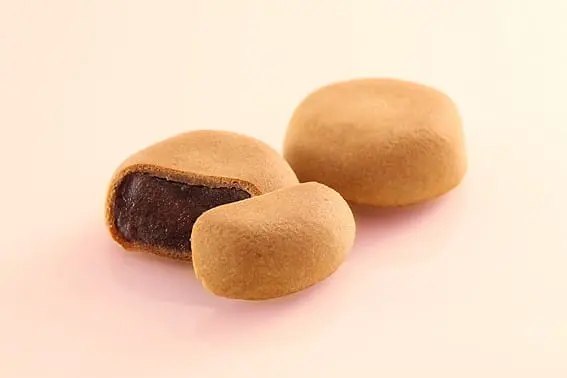
Picture courtesy of Tawayara Yoshitomi
Another popular choice is yae, a type of manju unique to Kyoto (108 yen per manju, including tax). The outside is baked and the inside is filled with refined red bean paste. The baked layer is flakey and delicious, and the inner layer has a springy mochi-like texture that adds to the sensory experience.
Special flavors are also available, including matcha and even cherry blossom depending on the season.
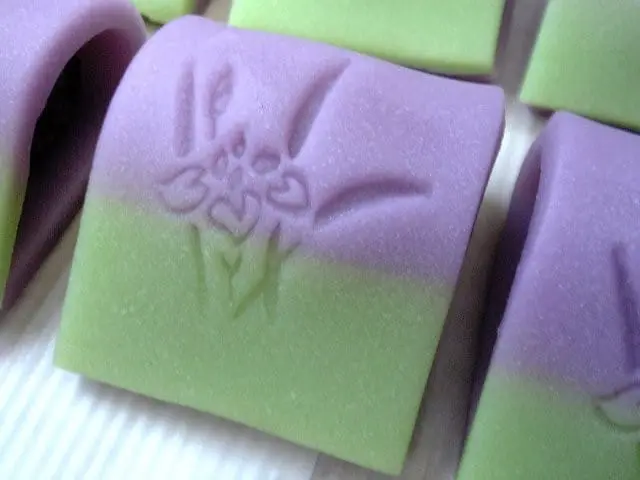
Picture courtesy of Tawayara Yoshitomi
Jonama gashi, or high-quality seasonal sweets inspired by flowers and Japan's nature, are also for sale (prices vary by piece). Pictured above is an iris-inspired sweet, steamed and filled with smooth red bean paste.
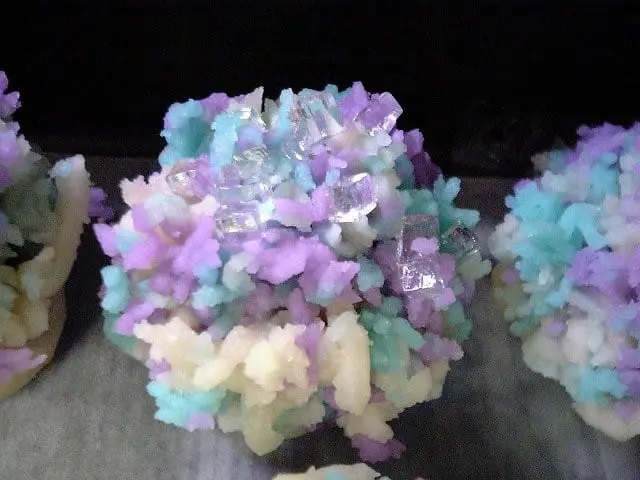
Picture courtesy of Tawayara Yoshitomi
Another springtime option is hydrangea, made with rice flour and textured red bean paste. These artistic sweets pieces taste exquisite when paired with tea. Please note the selection of sweets depends on the time of year.
Visitors interested in learning more about these decorative treats can participate in wagashi-making workshops held by the museum. For more information, please view their official website (Japanese).
Learn About Wagashi at an Inviting Museum
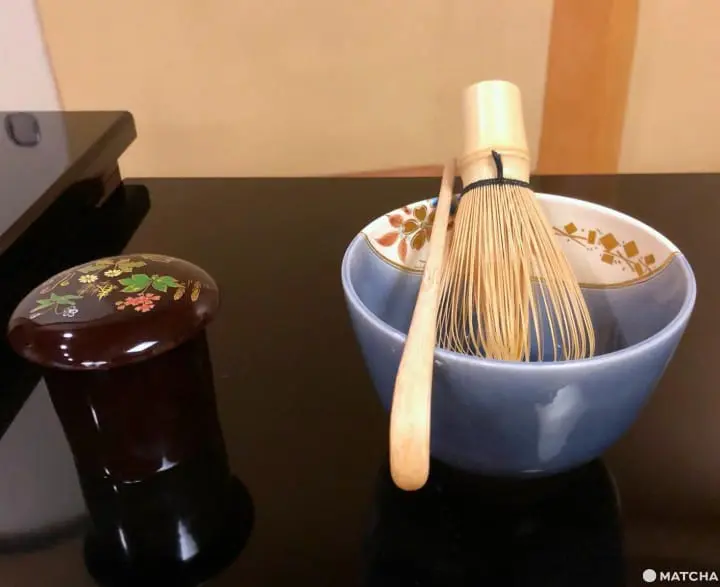
Tea ceremony tools for wagashi-accompanying matcha
Kyoto Confectionery Museum is a multi-faceted facility where visitors are invited not just to see, but to experience and enjoy Kyoto's rich connection to traditional sweets and matcha. The beautiful exhibits are informative and accessible, and the tea room experience is also a rare opportunity to relax and enjoy high-quality tea.
The museum is conveniently accessible via public transportation while being in a peaceful neighborhood with fewer travelers than major Kyoto destinations. Make sure to stop by for a relaxing and rare opportunity to immerse yourself in part of Kyoto's renowned cuisine and arts.
Read also
In cooperation with Kyoto Confectionery Museum
An awkward Southern California native living in Osaka. Originally came to Japan on the JET Program in Hyogo Prefecture (Kansai) after studying economics in college, and decided to try to stay.
IUC 10-month program graduate. Vegan and interested in all things Japan-related. Left-handed. Very fond of Kansai.










































![[During Your Kumano Trip] Cape Shionomisaki Tourist Tower](https://resources.matcha-jp.com/resize/720x2000/2025/11/05-249097.webp)
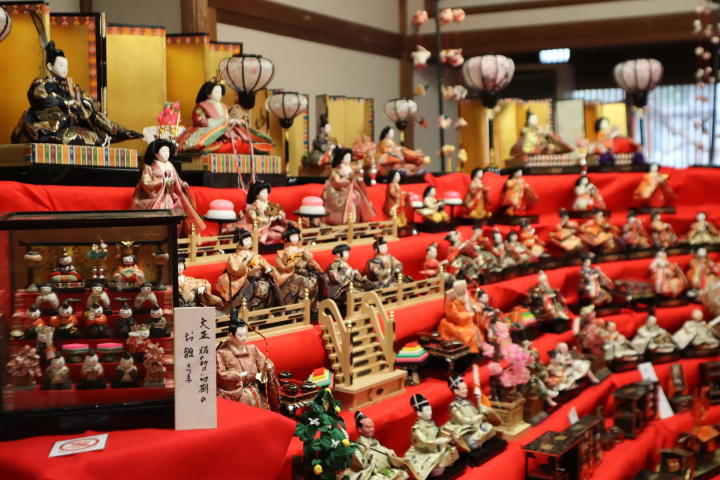
![[Kagoshima] Enjoy Minamisatsuma City to the Fullest! A Guide to the Scenic Beauty and Culture of Five Areas](https://resources.matcha-jp.com/resize/720x2000/2026/02/15-258755.webp)
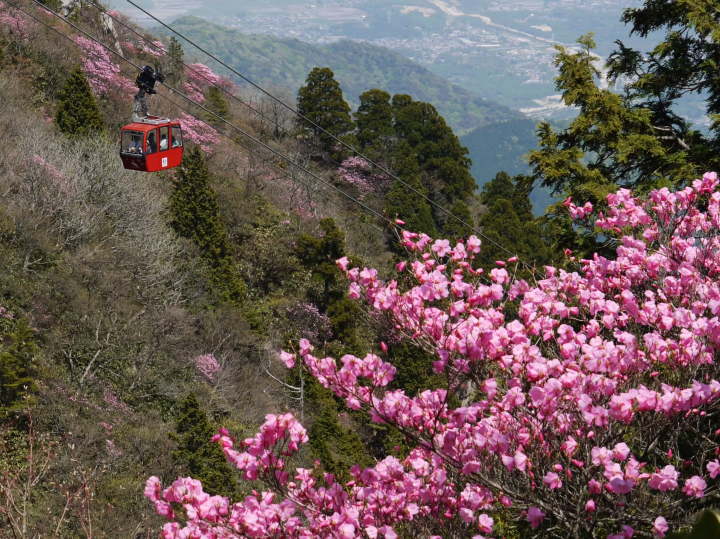
![[Yufuin]Yufuin in 100 Minutes: Quick Access Guide](https://resources.matcha-jp.com/resize/720x2000/2026/02/15-258738.webp)